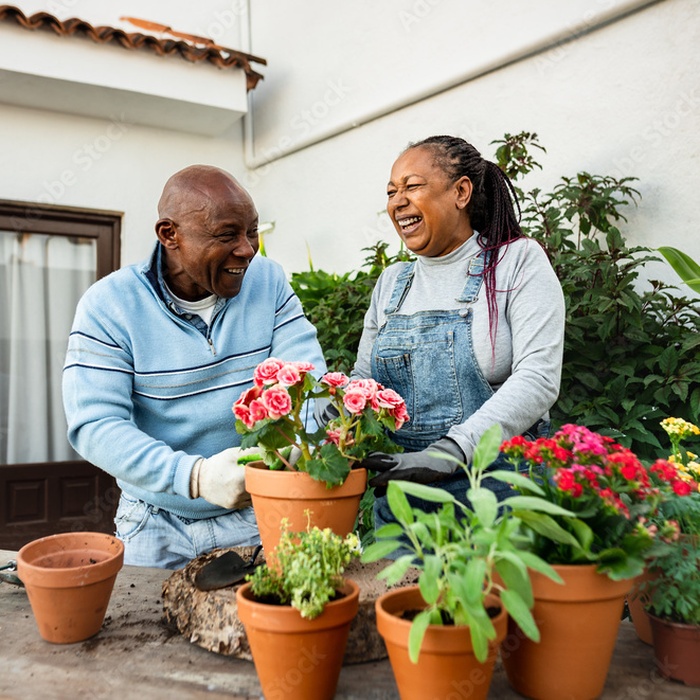What is social wellness?
Life is often fast-paced and demanding. The day to day is filled with work, excessive screen time, side hustles and personal commitments. The busyness often causes people to neglect their social well-being.
Social wellness is an often overlooked dimension of health. However, it plays a pivotal role in our happiness and satisfaction. What is a specific example of social wellness? You can improve your social wellness by getting together with friends. You can also connect with a sibling over coffee or play a game with a partner instead of watching television. There are many social wellness activities we can explore. Before we get too far into how to improve social wellness, let’s learn more about what it is. We’ll also look at what it means for your quality of life.

What is social wellness?
Social wellness is about the quality and strength of your relationships. You can improve your social health by having healthy connections with others. Having a sense of belonging and a supportive network is also important. Unlike other factors that affect health, social well-being is closely connected to our mental health. Our ability to relate to and connect with others plays a big role. Mental Health America shared that people with strong social relationships are 50% more likely to live longer.
Improving and maintaining social wellness involves self-reflection, active engagement and sometimes seeking guidance. Here are some reputable social wellness resources. They’ll help you learn, get support and feel motivated to enhance your social health.
Online Communities and Resources: Our favorite is Hello4Health by Allina Health. It is an online resource with fun activities to help people build and strengthen social connections. Not everyone has social support or the skills to stay connected. Hello4Health has tools to meet you wherever you are on your social-connection journey. Other online community platforms can be a great place to connect with like-minded people. They can also help spark new relationships. Seek out:
- Social media groups
- Membership sites
- Forums
- Online chatrooms
- Creator platforms
Books: Reading helps improve social wellness in many ways. It promotes empathy, communication skills, cultural awareness and conflict resolution. It also reduces stress and offers inspiration. Additionally, reading can help build communities and stimulate intellectual growth. It even provides conversation starters. Want some recommendations? Try "The Gifts of Imperfection" by Brené Brown. It explores the importance of vulnerability and connection for well-being. Another option is “How to Win Friends & Influence People" by Dale Carnegie. It offers advice on building meaningful relationships.
Counseling and Therapy Services: Therapy is a team effort tailored to each person. The strategies used depend on the unique needs and goals of each person. It helps boost self-esteem, understand emotions, set boundaries and manage social anxiety. It also fosters empathy and self-reflection. Therapy gives valuable tools and insights to improve social relationships. Find providers in your area at Allina Health.
Social Wellness Apps: Digital platforms and social wellness apps can connect you with others. They can inform you and improve your well-being. Some apps include:
- Friended focuses on helping individuals make meaningful connections and build lasting friendships.
- Meet My Dog connects dog owners for social meetups, so both the owner and the pup can enjoy the benefits.
- Calm offers guided meditation, mindfulness exercises and guided programs to improve sleep, reduce anxiety and build strong emotional well-being habits.
- Peloton connects individuals through fitness, meditation and more — fostering a sense of community and shared goals. Bikes, rowers and treads aren’t needed to get benefits from the app.
Local Community Resources: Look for resources at your local community center, library or religious organizations. They have social events, workshops and support groups. These can help you build connections and relationships in your community.
Taking care of your social well-being is a personal journey. It may take some exploring to find the resources that resonate with you. You can choose from online platforms, books or in-person interactions to improve your social wellness. Combining these resources can help you feel better socially.

What is the focus of social wellness?
Social wellness focuses on nurturing and maintaining positive relationships. This includes family, friends, colleagues and the broader community. Avoiding isolation is the key factor. Social isolation increases a person's risk of premature death by 29%. This exceeds the risk of obesity and several other risk factors. Another disheartening social wellness fact: 35% of adults 45 and older are lonely.
Being socially well helps you communicate better. It also helps you be more empathetic and genuinely care about others. Socially well individuals feel like they belong, are accepted and have emotional support. This is good for mental and emotional health.

What is a specific example of social wellness?
A specific example of social wellness is having supportive social networks. This means having meaningful connections with others and feeling like you belong. It also means having a strong support system. How does this affect a person’s experience? For example, here are ways being a member of a gardening club with your neighbor can improve your social well-being:
- You are building upon a meaningful relationship with your neighbor. You do this by meeting regularly and sharing in a common interest.
- You’re receiving emotional support from the instructor, who shows eagerness for you to attend and share with the group.
- Being a part of a larger group fosters diverse connections and mutual support through shared goals.
- Wherever your gardening club is being held, you’re promoting your environmental wellness by doing something as a collective in a safe space.
- The biggest benefit is reducing social isolation. Maintaining a sense of connection is crucial for mental health.
How to improve social wellness
Staying socially healthy is vital for well-being and happiness. Here are 10 tips to stay socially healthy:
- Make health a priority early in life. Educating kids about health helps them better manage stress. It also encourages them to be engaged in their nutrition and be active with their friends.
- Get out there. Even if you don’t feel like being social, push yourself to connect with friends, family, neighbors and other people you love on a regular basis.
- Eliminate negative self-talk. Feeling lonely and left out can spark a critical inner dialogue. Try incorporating positive affirmations. They are scientifically proven to improve your self-view. They also enhance your ability to cope with challenging situations.
- Listen for connection. Practice active listening in conversations. Give your full attention to find ways you are similar. Show empathy and connection when the other person needs support.
- Take gentle risks to deepen conversation. Create safe spaces for conversation by balancing curiosity, open-mindedness and respecting boundaries. People tend to respond better to mutual sharing if you use a nonjudgmental and shame-free approach. And remember, you are not in the conversation to fix or be fixed.
- Balance online and offline interaction. While online platforms can help maintain connections, it's crucial to strike a balance. Don't let virtual interactions replace in-person communication. Set limits on screen time to focus on real-world connections.
- Join a social group or club. Clubs, organizations and networking groups offer the chance to meet new people. You can share common experiences and expand your social circle.
- Connect across cultures. It’s important to have friendships with similar interests and backgrounds. However, forming connections with people whose experiences are different helps challenge assumptions. It also enriches life with new perspectives.
- Consider adopting a pet. Pets can provide companionship. They can also encourage physical activity like walking. Additionally, they can inspire visits to pet-friendly spaces where you can find other pet owners to connect with.
- Seek help when you need it. If improving your social wellness on your own is challenging, seek help. You are never alone.
Social health is an ongoing process that requires attention and effort. Incorporate these tips to nurture and strengthen your social connections. This will help you create a more fulfilling life.
You can improve your health and happiness by understanding adult social well-being and its significance. Building and maintaining strong social connections is a lifelong journey. It brings many benefits for your mental and emotional well-being. It also benefits the health and well-being of the people you connect with. The physical and mental benefits of social connectedness lead to healthier, more engaged communities. And it starts with you. Just say “Hello!”
